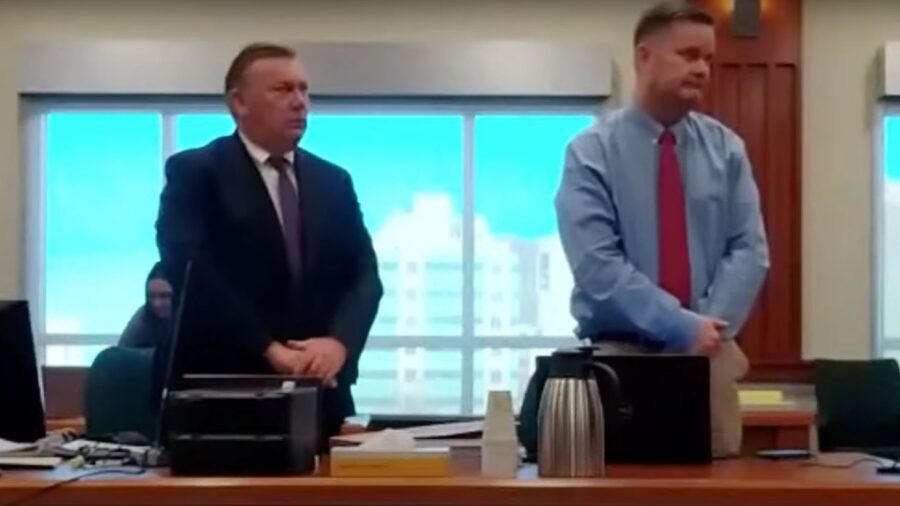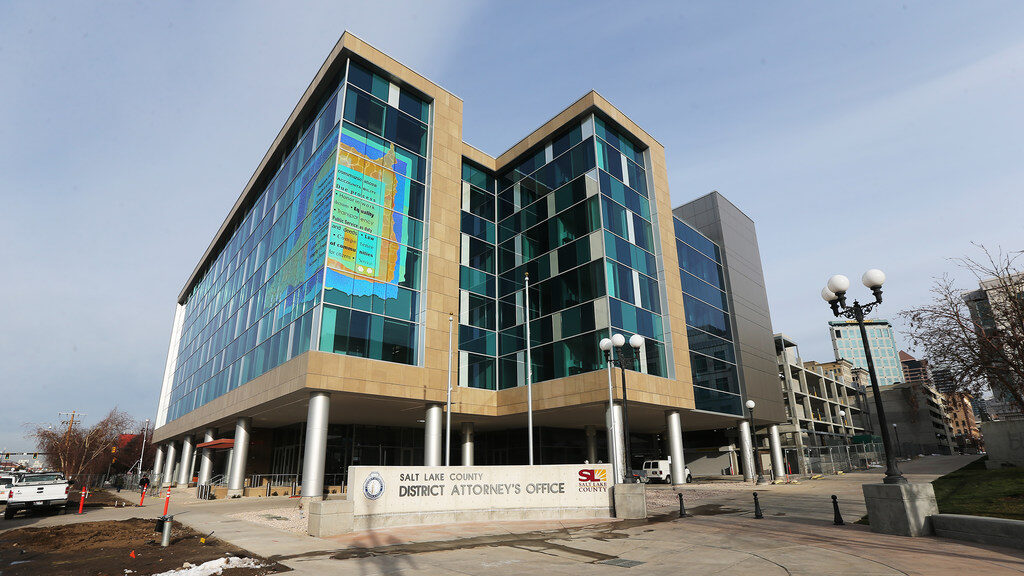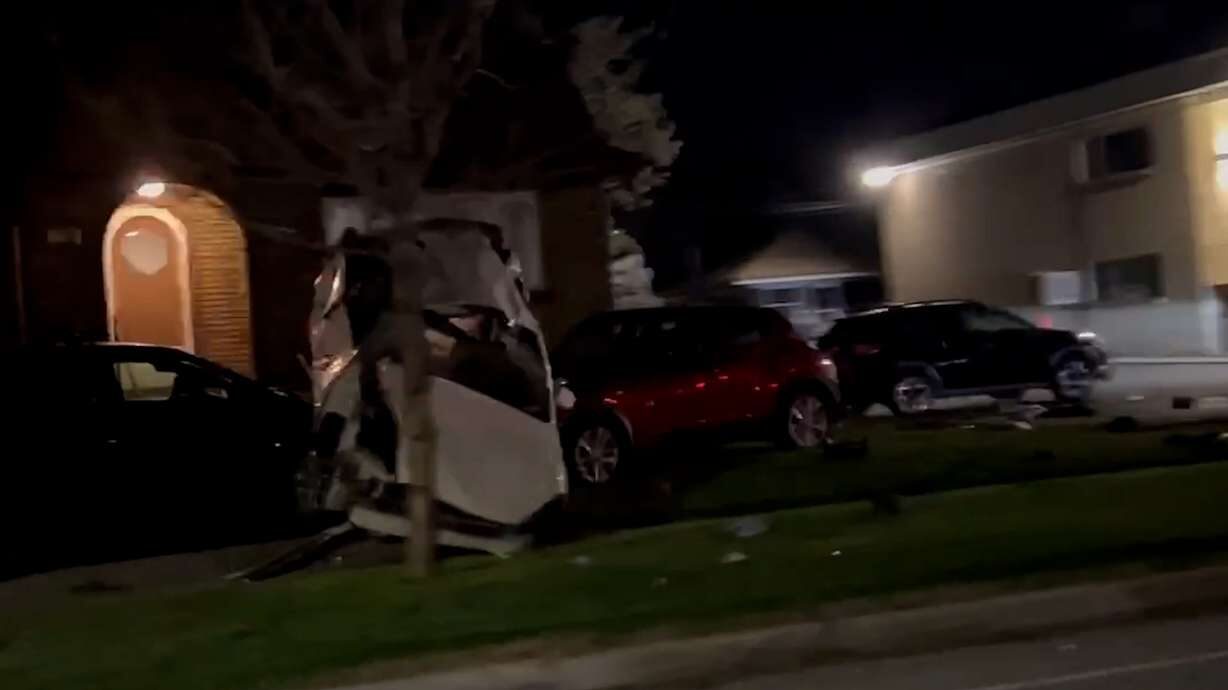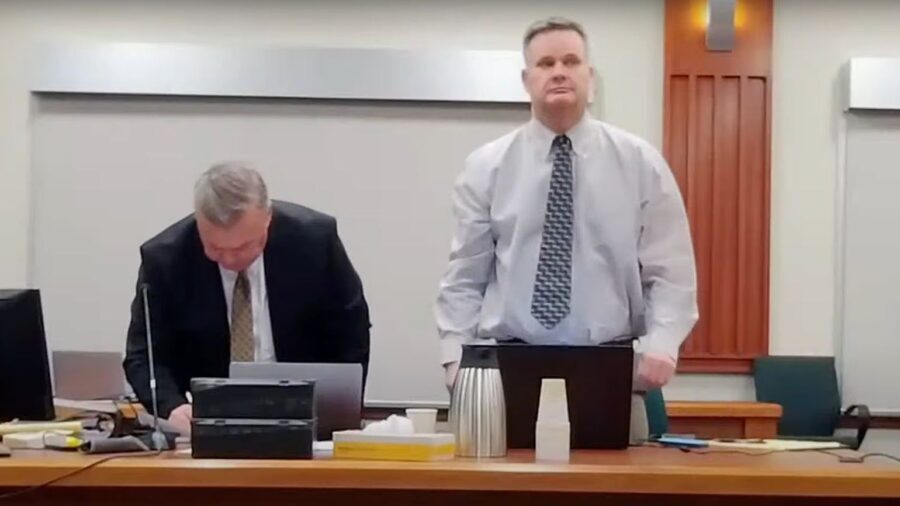Move to repeal Utah’s death penalty fails on Capitol Hill
Feb 14, 2022, 9:51 PM | Updated: Feb 15, 2022, 9:25 am
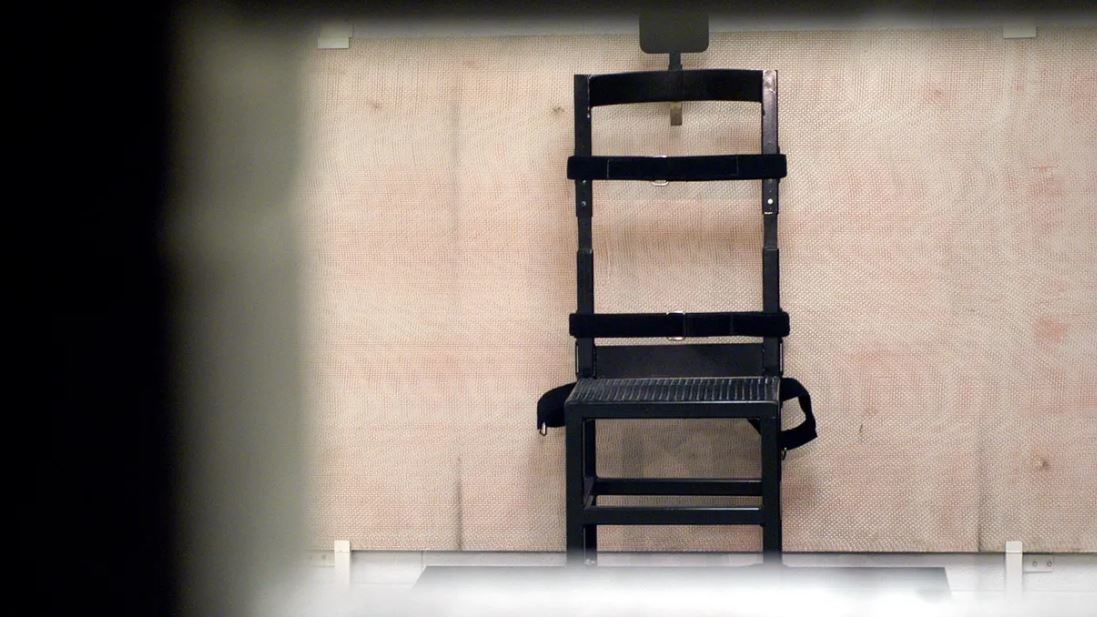
(A firing squad chair in the execution chamber at Utah State Prison is pictured, as seen through the rifle port, on May 5, 2004. Jeremy Harmon, Deseret News)
(A firing squad chair in the execution chamber at Utah State Prison is pictured, as seen through the rifle port, on May 5, 2004. Jeremy Harmon, Deseret News)
Sound up for live discussion with Dave and Dujanovic.
SALT LAKE CITY — Utah’s death penalty will not be repealed this year. After hours emotional debate on both sides about a bill that would have eliminated capital punishment, a House committee shot down the bill by the slimmest of margins.
Before the House Law Enforcement and Criminal Justice Committee meeting even began, lawmakers knew HB 147 would face a lot of opposition. Senator Dan McCay would have been the Senate sponsor had it passed the House, and even McCay believed if it were to pass through the legislative session, it would only do so by a razor-thin margin.
After hours of discussion, the bill to repeal Utah’s death penalty fails to pass through a House committee, six to five.
— Paul Nelson (@KSLPaul) February 15, 2022
In the end, the opposite happened, and the committee voted against passing the bill by a 6-5 vote. McCay told KSL Newsradio capital punishment is such a lengthy and expensive process. It doesn’t actually provide the justice that it promises.
McCay said, “More people die in prison of natural causes on death row than die from being either lethally injected or the firing squad, in the state of Utah.”
Representative Lowry Snow told the committee there were three main reasons why he wanted to repeal Utah’s death penalty and replace it with a prison sentence of 45 years to life. First, he said the penalty was “broken,” meaning it’s costly and slow. Second, he said it could cause more harm to victims’ families who have to endure countless appeals and litigation. Third, he said the state runs the risk of sending innocent people to their deaths.
Innocent people sent to death row
Sharon Wright Weeks spoke in favor of the repeal. Her sister, Brenda, and her niece, Erica, were killed by Ron and Dan Lafferty in 1984. Ron Lafferty was sentenced to die, but eventually passed away from natural causes after 34 years in the prison system. Wright Weeks said she waited for justice, which never really came. In her personal search for answers, she believes she found evidence showing the system is deeply flawed.

(Death row inmate Douglas Stewart Carter, seen having his shackles removed in Provo’s 4th District Court on October 2, 2007. Photo: Al Hartmann, Deseret News)
She said, “My questions led me to information that people had been executed innocently, disposable people. And that there had been some exonerations from death row, at that time.”
Officials with the Rocky Mountain Innocence Center said there have been 2,961 exonerations across the country since 1989. And 19 people have been exonerated this calendar year. They also testified that three death row inmates were found to be innocent in 2021, although, none of them are from Utah.
Center officials also cited the case of Douglas Stewart Carter, who claims his murder confession was false and that star witnesses were threatened and paid off by the Provo Police Department in the 1980s. However, Andrew Peterson from the Utah Attorney General’s Office said Carter never recanted his confession, and that he even confessed to other people immediately after his crime.
Critics call the bill a ‘false promise’
Peterson attended the meeting to speak out against repealing the death penalty on behalf of the Utah Attorney General. He told committee members getting rid of capital punishment won’t prevent family members of murder victims from reliving the trauma they’ve suffered during a constant process of appeals. Peterson said there’s a never-ending cycle of litigation in cases that don’t qualify for the death penalty, and family members already have to suffer through those.
“This bill will not end that cycle of endless litigation in non-capital cases,” Peterson said.
He also said the bill ignores the fact that some murderers can’t be safely imprisoned, in any way. Peterson argued that the death sentence shouldn’t be removed simply because the process takes a long time.
He said, “To repeal capital punishment based on delay is to wave the white flag of surrender to murderers who have a perverse incentive to delay resolution of their cases, and a judiciary that rewards them for those efforts.”
Capital punishment a ‘deterrent’
Some people speaking out against the repeal say the mere existence of the death penalty has helped the families of murder victims. Bonnie Black is related to Elizabeth Shelley, who was reportedly murdered by Alexander Whipple in Logan in 2019. Black said just the discussion of the death sentence made Whipple cooperate with investigators.
Black said, “It wasn’t until Alex was faced with the possibility of his own death that he finally agreed to end our suffering. In exchange for removing the possibility of the death penalty, he drew a map to where he had hidden her.”
Other opponents of the bill worried it would have given convicted murderers a chance to eventually get a parole date, but the bill’s supporters say it would not be applied to any case before 2022.
Read more:



